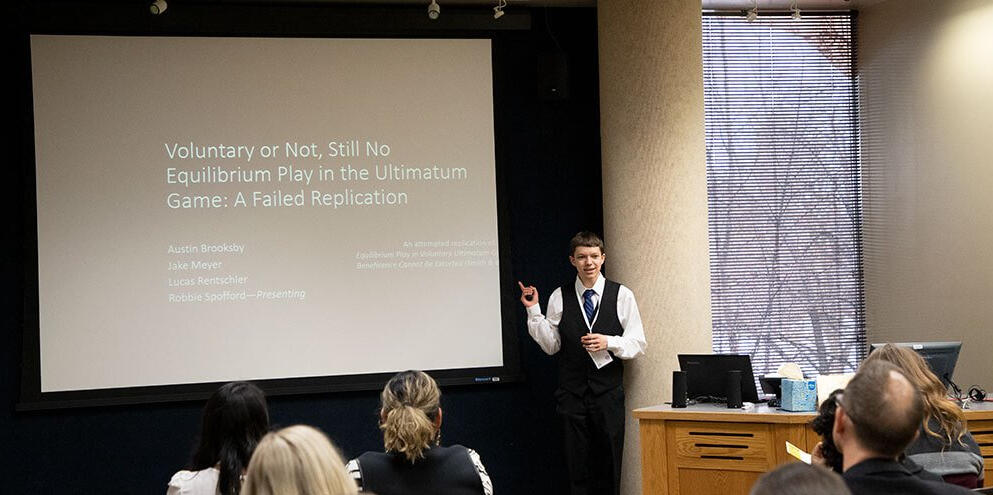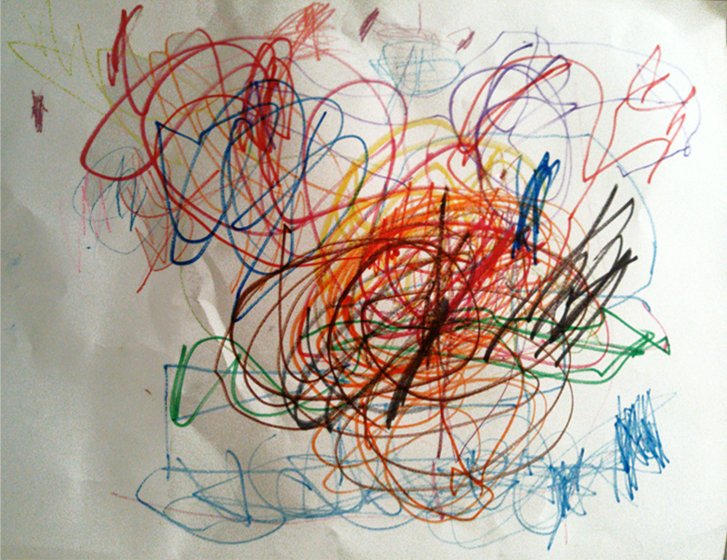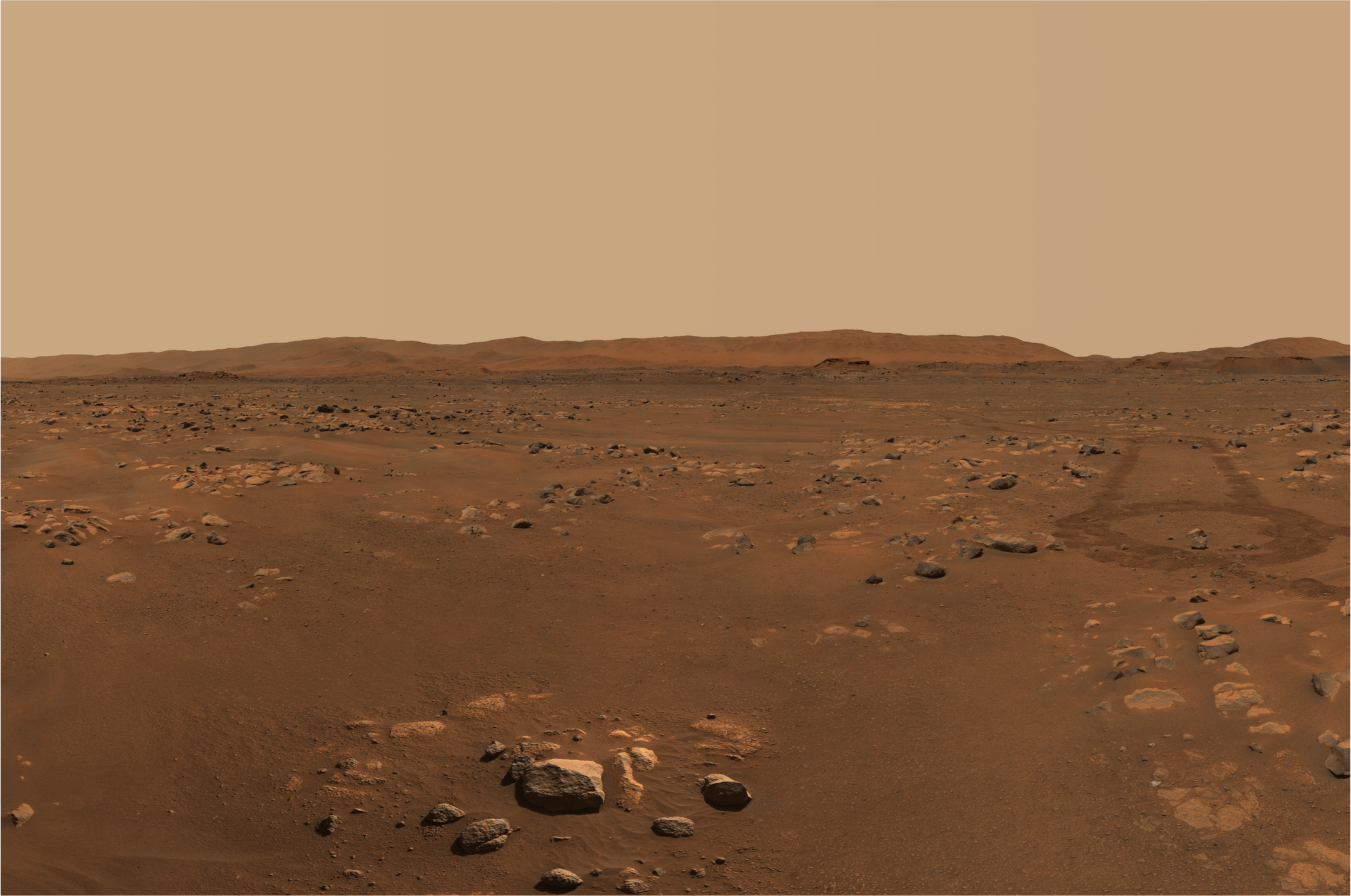Robbie's Research
The online home of Robbie Spofford's intellectual endeavors.
Select works cited within are available upon request. Such requests or other inquiries for discussion or partnership are always welcome at Research@RobbieSpofford.com.

Robbie Spofford presenting at the Utah Conference on Undergraduate Research (UCUR) in February 2020.
Photo Credit: Center for Growth and Opportunity at Utah State University
Economics
As an Undergraduate Research Scholar in Economics, much of my early studies were focused on experimental economics and how human behavior can be measured quantitatively in laboratory environments.
This included a formal economic replication project with a team at Utah State University's Experimental Economics Lab that has been submitted for publication:
"Replication and reinterpretation of 'Equilibrium play in voluntary ultimatum games: Beneficence cannot be extorted'" with Austin Brooksby, Jacob Meyer, Lucas Rentschler, and Vernon Smith.
Other valuable course presentations and papers include:
"Competition for corporations between cities" (Late 2018)
"Relations between federal, collegiate financial aid and post-graduation wages," with Brandon Christensen and Tanner Kattenhorn (Early 2019)
"Psychometrics in economic experiments: a survey" (Early 2019)
"Relations between attributes of institutions of higher education and post-graduation wages," with Youngwook Kim and Michael Vakula (Late 2019)
"Voluntary or Not, Still No Equilibrium Play in the Ultimatum Game: A Failed Replication," solo presentation on research with Austin Brooksby, Jacob Meyer, and Lucas Rentschler (Early 2020)

"Scribbles," Bea, Age 3
Creativity
While my personality has always lent itself to artistic endeavors (see Music with Robbie for my Piano Improvisations), my academic investigations of creativity began primarily in graduate school at the Center for Applied Imagination in Buffalo, NY.
Looking to build upon my social science skillet from economics but from a complementary, more qualitative angle, I pursued and completed a Master of Science in Creativity and Change Leadership during the height of the COVID-19 global pandemic.
Key presentations and papers from the earliest segments of this academic journey include:
"Destiny in the stars: Visual and aural reflections on the works of John Gowan" (Early 2021)
"An analysis of the barriers to deep integration of creativity in the social sciences" (Late 2021)
"Learning is creation, not consumption: The necessity of improvisation" (Late 2021)
"The design and development of creativity in the future: An annotated bibliography" (Early 2022)
"Creativity: The core of authenticity in a postmodern society" (Early 2022)
"Four Themes of Creativity: A portfolio on solving problems, our human condition, imagination & ideation, and authenticity" (Early 2022)

Surface of Mars, Perseverance Rover, NASA

Possibility
The study of possibilities is connected to but distinct from that of creativity. The field's 2022 manifesto, written by Vlad Glăveanu with guidance from 19 individuals including myself, explains in part:
"Possibility Studies as a new and emergent multi- and trans-disciplinary field is dedicated to the study of... foregrounding hope, imagination, agency[,] and creativity... to fully appreciate what it means to be human in a world that oftentimes resists our needs, expectations, and aspirations."
My present research interests lie in identifying why optimistic ideas often appear irrelevant, how increasing optimism translates to intellectual openness and improved problem-solving, and how to increase awareness for the need for human space settlement / social science research to support the coming eras of possibility that we struggle to fully imagine.
Some recent works addressing the above questions include:
"Applying Imagination to Social Science in Space: A planetarium production" (Early 2022)
"Creativity and understanding the postmodern present" (Early 2022)
"Anything is possible: The purpose of optimism" (Early 2024)
Editor of "P²: Possibility Perspectives," quarterly publication of the Possibility Studies Network with Trina Emler (Mid 2024 - Ongoing)